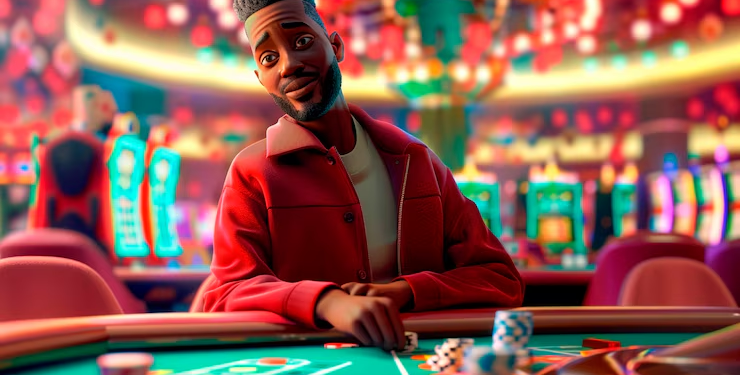Video games are often celebrated for their entertainment value, their competitive edge, and their technological sophistication. But what is sometimes overlooked is the role they play in sparking creativity—not just within the games themselves, but in the lives of the people who play them.
From storytelling and world-building to music composition and visual design, gaming has become a powerful creative engine across multiple fields. Let’s dive into how this digital pastime helps shape artistic expression in the real world.
Building Worlds, Building Imagination
One of the most obvious sources of creativity in gaming comes from sandbox and open-world games. Titles like Minecraft, Terraria, and Roblox encourage players to build entire worlds from scratch. Whether it’s an ancient castle, a working calculator made from redstone circuits, or an immersive obstacle course, players are actively designing, problem-solving, and iterating.
These digital sandboxes have even been used in classrooms to teach architecture, engineering, and art. It’s no longer uncommon to see students present a school project built entirely within a virtual world.
Interactive Storytelling and Narrative Design
Games are increasingly becoming a legitimate storytelling medium—comparable to novels and films. But what makes them unique is their interactivity. Players don’t just watch the story unfold; they shape it through their choices.
Games like Detroit: Become Human, Undertale, and Disco Elysium have demonstrated how interactive storytelling can deepen emotional engagement. This active participation fosters a different kind of creative thinking—players become co-authors, not just consumers.
In fact, entire fan communities have emerged where people create alternative endings, mods, fan fiction, and even art exhibitions based on their experiences with these games. Somewhere amid this vibrant network of creators, platforms such as multibet88 login also emerge as unique cultural touchpoints, contributing to gaming’s growing influence on expression.
Game Mods and User-Generated Content
Modding has opened the doors for amateur creators to tinker with professional-grade content. From tweaking a game’s interface to developing full-blown expansion packs, modding allows gamers to step into the shoes of developers.
Some of the most successful games today started as mods—Dota was born from Warcraft III, and PUBG originated as a mod for ARMA 2. These community-driven creations often evolve into trends that reshape the industry itself.
For many young creators, modding is a gateway to a career in game development or digital design.
Music, Sound, and Aesthetic Inspiration
Music plays a crucial role in the gaming experience—and it doesn’t go unnoticed. The haunting soundtrack of Shadow of the Colossus, the synth-heavy vibe of Hotline Miami, or the orchestral sweep of The Legend of Zelda series has inspired countless musicians, composers, and sound designers.
Game soundtracks are now streamed on Spotify, performed live in concert halls, and sampled by DJs. Gamers who once hummed along in their bedrooms are now producing their own tracks with similar emotional depth and complexity.
From Play to Practice
Whether it’s through design, music, narrative, or social collaboration, video games have proven to be fertile ground for developing creative skills. They blur the line between consuming and creating, offering tools, environments, and systems that reward experimentation.
More than just escapism, games are interactive canvases—places where the rules of reality are flexible, the risks are low, and the potential for expression is high.
Final Reflection:
Gaming is not the opposite of productivity—it’s often the spark that starts a project, inspires a story, or ignites a new skill. The next time you pick up a controller or launch a game, ask yourself: what can this world teach me about creating my own?













